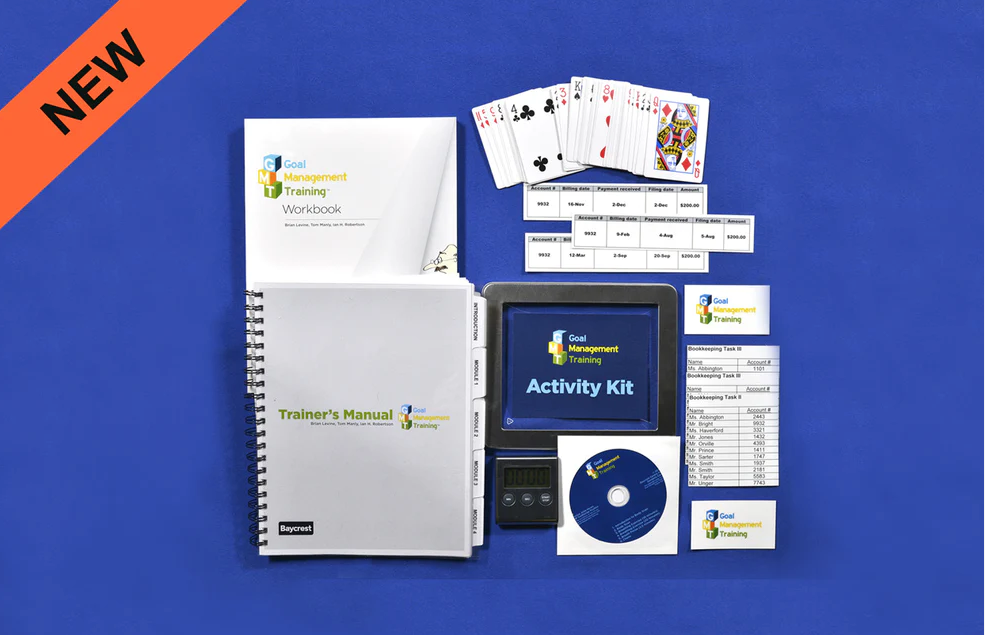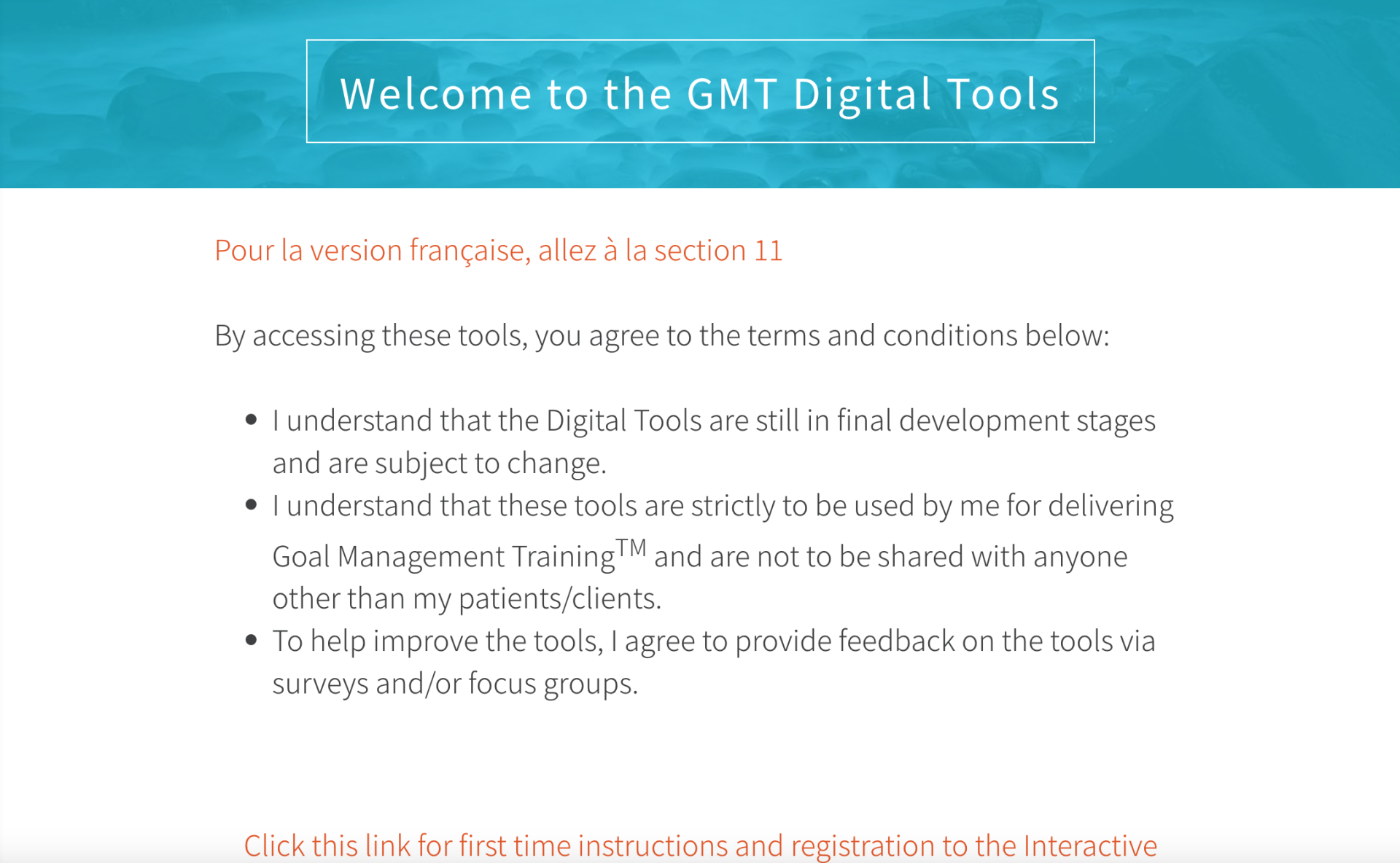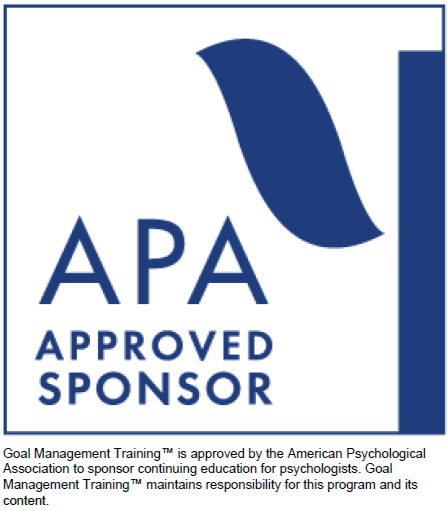
Digitizing GMT Part 1: The Making of the Digital Tools
Dec 21
/
Brian Levine, Ph.D., C.Psych, ABPP-cn
COVID-19 and the Acceleration of Telemedicine Interventions
Technological and healthcare innovations often emerge in the wake of disaster. History will view the COVID-19 pandemic as one such event. While we never could have anticipated the pandemic and the pain that it has wrought, it has forced adaptation.
Many suffer from cognitive impairment as a result of the pandemic, either directly due to COVID-19 infection and its aftermath or indirectly through burnout, fatigue, and stress. Prior to the pandemic, the effectiveness of Goal Management TrainingTM (GMT), an intervention for executive function impairment, was already studied in post-viral conditions, as well as supporting disabled workers.
In 2021, our team at Baycrest received funding from the Ontario Together Program to accelerate our digital GMT activities in the context of the COVID-19 pandemic. We initially sought to make an app that clients could access as end-users, guided by therapists. But we only had a few months, which was not enough time to build an app with a secure back-end needed for public use.
Many suffer from cognitive impairment as a result of the pandemic, either directly due to COVID-19 infection and its aftermath or indirectly through burnout, fatigue, and stress. Prior to the pandemic, the effectiveness of Goal Management TrainingTM (GMT), an intervention for executive function impairment, was already studied in post-viral conditions, as well as supporting disabled workers.
In 2021, our team at Baycrest received funding from the Ontario Together Program to accelerate our digital GMT activities in the context of the COVID-19 pandemic. We initially sought to make an app that clients could access as end-users, guided by therapists. But we only had a few months, which was not enough time to build an app with a secure back-end needed for public use.
Business people love to use the word “pivot,” and that is what we did. Recognizing the rise of telemedicine prompted by the pandemic, the Baycrest team decided to put the contents of the physical GMT kits online, allowing GMT therapists to scale the delivery of this intervention to their telemedicine clients. (The physical kits remain available for purchase through the Baycrest eStore.)


Overcoming roadblocks in the translation interventional content: protecting clients’ confidentiality
GMT is not just about delivering educational content; it’s about experiences. In GMT, clients visit the “Mental Laboratory” to try out various tasks that simulate challenging real-life experiences, such as multitasking. As part of our earlier research digitizing GMT, we had developed analogues of these tasks for use on a desktop.
In our new Digital Interactive Task platform, therapists assign tasks to clients using an anonymized code. Clients can review their performances, and therapists get detailed feedback that they can use to guide their clients – without anyone’s identity recorded on the platform.
In our new Digital Interactive Task platform, therapists assign tasks to clients using an anonymized code. Clients can review their performances, and therapists get detailed feedback that they can use to guide their clients – without anyone’s identity recorded on the platform.
Write your awesome label here.
Write your awesome label here.
Digitizing the GMT train-the-trainer workshop
I have had the pleasure to lead regular full-day GMT train-the-trainer workshops since 2012. Even before the pandemic, we had opened our workshop to remote participants through teleconferencing. With the support of the Ontario Together program and the collaboration of eLearning developers, we have translated the entire workshop to a digital format, allowing anyone in the world to participate in training asynchronously, at their own pace.
The in-person interactions can never be replaced, but there are things we can do with eLearning that cannot be done in person. In a live workshop, everyone has to listen to the same content in sequence. We have a heterogenous audience with different levels of experience and prior knowledge. Not all of them need to hear the same content. For example, we provide some content on basic brain anatomy. On our new eLearning platform, we can provide this kind of content in depth for people who need it or want it, while those who already have the background knowledge can skim it. Our eLearning workshop is augmented by regular 90 minute live sessions where learners can interact with each other and GMT experts.
Write your awesome label here.
As of December, 2022, the GMT digital tools and eLearning are available – in English and in French – to therapists worldwide. We are hopeful that the innovations described here will play a role in increasing peoples’ day-to-day functioning at work and at home.
In the meantime, we have not forgotten about the app. Our team is now working to develop new methods for semi-automated delivery of GMT that would allow more people to access GMT techniques with therapist support calibrated to individual needs.
Dr. Brian Levine is a clinical neuropsychologist and senior scientist at Baycrest's Rotman Research Institute.
The work described above was funded by the Ontario Together Fund, Baycrest, the Canadian Center for Aging + Brain Health Innovation (CCABHI), the Canadian Partnership for Stroke Recovery (CPSR), the Bradstreet Family Foundation, and Mitacs.
The work described above was funded by the Ontario Together Fund, Baycrest, the Canadian Center for Aging + Brain Health Innovation (CCABHI), the Canadian Partnership for Stroke Recovery (CPSR), the Bradstreet Family Foundation, and Mitacs.

Supported by Baycrest, Goal Management TrainingTM is a cognitive rehabilitation training program to improve executive functioning, attention, and goal attainment.
Copyright © 2026
